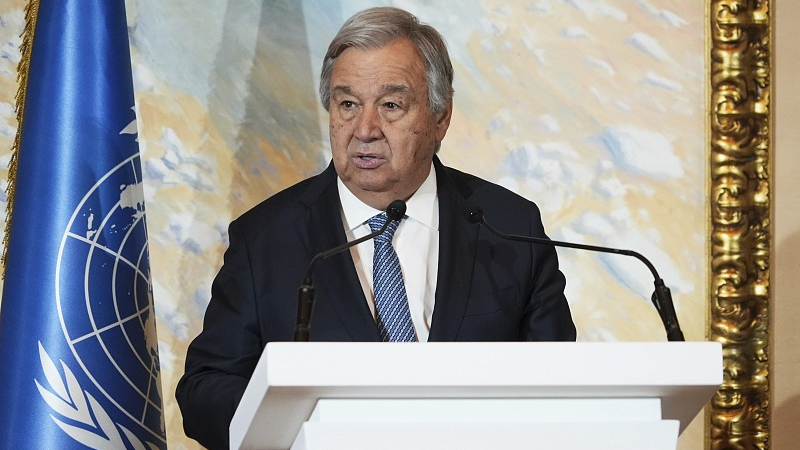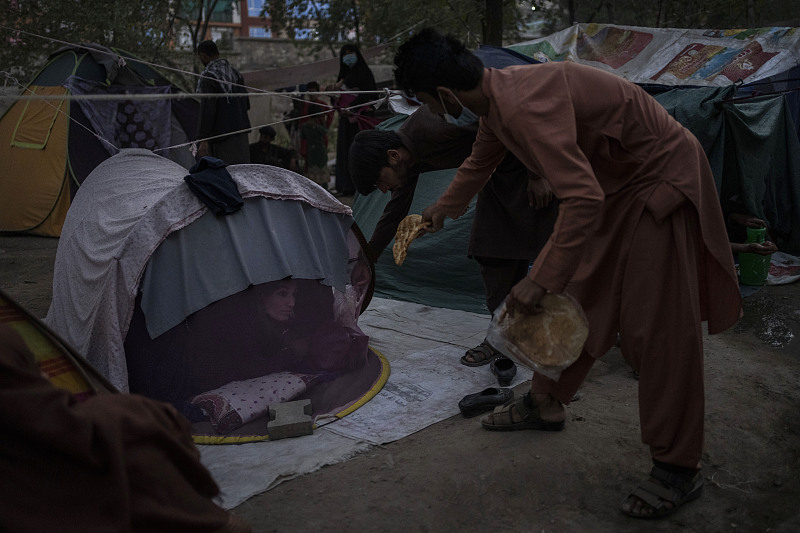
UN Secretary-General Antonio Guterres gives an address after a closed-door summit on Afghanistan, Doha, Qatar, May 2, 2023. /CFP
UN Secretary-General Antonio Guterres gives an address after a closed-door summit on Afghanistan, Doha, Qatar, May 2, 2023. /CFP
United Nations Secretary-General Antonio Guterres on Tuesday warned that Afghanistan faces "the largest humanitarian crisis" in today's world, while calling for more funding for the UN humanitarian response plan.
The UN chief made the remarks during a press conference in the Qatari capital of Doha following a two-day closed-door meeting on Afghanistan with special envoys from more than 20 countries and international organizations, including China, Russia and the United States.
Currently, 97 percent of the population in Afghanistan is living in poverty, while two-thirds of the population requires humanitarian assistance to survive this year, Guterres said. He warned that the UN's Humanitarian Response Plan, which seeks $4.6 billion in funding, has only received $294 million, with a 94-percent shortfall.

An Afghan distributes food donations to a displaced person, Kabul, Afghanistan, September. 13, 2021. /CFP
An Afghan distributes food donations to a displaced person, Kabul, Afghanistan, September. 13, 2021. /CFP
According to experts, international funding can't be given directly to the Taliban government now due to sanctions from Western countries, which have crippled the Afghan economy and fueled poverty. State reserves of Afghanistan are still frozen in the U.S. and Europe, and can't be used to take care of the people of Afghanistan.
By far, the international society has failed to reach a diplomatic consensus on the Taliban government, the current actual ruler of Afghanistan.
Guterres emphasized that the meeting was about developing a common international approach to solving the current humanitarian crisis in Afghanistan, "not about recognition of the de facto Taliban authorities."
The Taliban did not send representatives to the meeting because they were not invited. The UN chief said that he would meet with Taliban representatives "when it is the right moment to do so," but not now.
(With input from Xinhua)